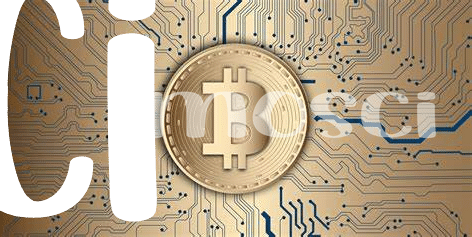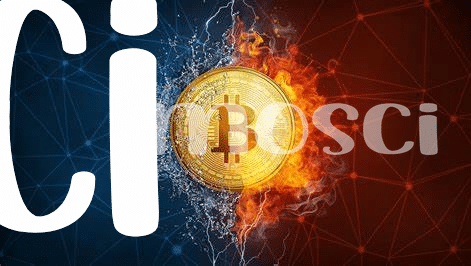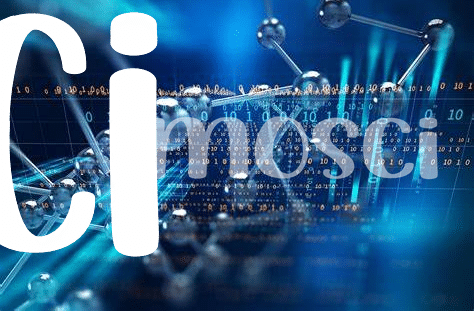Blockchain Basics: More Than Digital Coins 🪙

Imagine a big, digital ledger that’s shared between multiple people, kind of like a shared online notebook. This isn’t just any notebook, though; it’s super secure, and once something is written in it, it can’t be erased or changed—making it trustworthy and reliable. That’s the essence of blockchain, a technology you might only know because it’s behind the likes of Bitcoin. But, it’s so much more than just digital money. This genius tech is spreading its wings, influencing sectors far and wide, proving that it’s not only about creating cryptocurrencies but also about making various processes more transparent, efficient, and secure. Whether it’s artists selling digital art or businesses tracking products from factory to shelf, blockchain is making waves. Picture a world where every transaction, agreement, or exchange is neatly and securely recorded in a way that’s accessible but can’t be tampered with. That’s the kind of future blockchain is paving the way for, moving well beyond its roots in digital currencies.
Here’s a snapshot of its widespread applicability in different sectors:
| Sector | Application |
|---|---|
| Art and Collectibles | Digital ownership and provenance tracking |
| Healthcare | Secure medical records and patient data management |
| Supply Chain | Product lifecycle tracking from production to delivery |
| Identity Verification | Secure and immutable identity verification processes |
| Energy Sector | Transparent and efficient energy usage tracking and trading |
Smoothing Out Supply Chains 📦
Imagine a world where your online order travels to you on a seamless road, every stop and go neatly recorded, ensuring it arrives just in time. That’s the magic blockchain brings to supply chains. This tech acts like a universal tracker; from the moment an item is made, to every hand it changes, until it lands at your doorstep, everything is transparent. It cuts down mistakes, saves money, and makes recalling faulty goods a breeze. With such clarity, businesses can make smarter choices, like stocking up on what’s really needed. It’s like having a superpower for logistics, making sure shelves are stocked and your favorite goods are always ready to shop. For a deeper dive into how blockchain is transforming trust in technology, check out this article: https://wikicrypto.news/blockchain-explained-revolutionizing-trust-with-technology.
Reinventing How We Vote 🗳️

Imagine going to vote, but instead of standing in long lines and wondering if your ballot really counts, you click a few buttons from the comfort of your home. Thanks to blockchain, this isn’t just a dream. This technology offers a secure and transparent way to vote online. Every vote becomes a block in the chain, safely locked away and impossible to change. This means no more lost votes or accusations of tampering. Everyone can see the process but can’t mess with it, making it a game-changer for trust in elections.
Moreover, blockchain could open doors for more people to participate in democracy. Think about those who can’t reach polling stations due to illness, disability, or other reasons. With blockchain, they could vote securely from anywhere, increasing voter turnout and making sure every voice counts. It’s like giving our democracy a major upgrade, ensuring it’s fair, accessible, and in step with our digital world. 🌐🔒🗳️
Revolutionizing Medical Records 🏥

Imagine going to the doctor and instead of having to recall your entire medical history or carry around physical documents, all your health information is safely stored in one digital ledger. This is not a distant dream; it’s becoming a reality thanks to the innovative technology behind bitcoin and defi ecosystems and the blockchain. By securely storing patient records on a blockchain, not only can personal health information be accessed quickly, but it can also be significantly more secure from hacking or unauthorized access. This means less paperwork, quicker diagnosis, and treatments tailored to your unique health profile.
The implications are profound. For example, in the event of an emergency, healthcare providers could immediately access your medical history, allergies, and previous treatments with your permission. This seamless communication could save lives by making medical responses faster and more accurate. Furthermore, the potential for error in medical records, which can be life-threatening, is greatly reduced when using blockchain because once information is recorded, it can’t be altered without a trace. This transformative approach to handling medical records could lead to a future where healthcare is more efficient, secure, and patient-focused. 🏥🔒💡
Securing Identity Management Like Never before 🔐
Imagine keeping your personal information safe as if it were locked in a treasure chest, but even more secure. This is what blockchain brings to identity management. It’s like giving everyone their own unbreakable, uncopyable key to their digital identities. No more worrying about someone stealing your information from a company’s database – because with blockchain, you hold the key, literally. This technology is changing the game by storing personal data across a network of computers, making it nearly impossible for hackers to access. Plus, you get to choose who sees your information and for how long. It’s like having secret agents guard your identity, but even cooler because it’s all powered by advanced technology. Blockchain is not just about keeping our digital identities safe; it’s about giving us the control and peace of mind we’ve always wanted in the digital age.
| Benefits of Blockchain in Identity Management | Description |
|---|---|
| Enhanced Security | Distributed ledger offers a new level of encryption, making personal data nearly tamper-proof. |
| User Control | Individuals can control who accesses their information and for how long, ensuring privacy. |
| Reduced Fraud | Secure, unique digital identities help reduce identity theft and fraudulent activities. |
| Efficiency and Speed | Streamlines verification processes, making it faster and more efficient than traditional methods. |
Green Light for Sustainable Energy 🌱

When we think about making the world a cleaner and greener place, our minds might not immediately jump to blockchain technology. Yet, this clever digital system, best known for powering cryptocurrencies, is now paving the way for a revolution in sustainable energy. By securely recording transactions in a way that’s transparent and hard to tamper with, blockchain is making it easier for individuals and companies to buy, sell, and trade renewable energy. This means that homeowners with solar panels, for example, can easily sell their excess electricity back to the grid. It’s creating new opportunities for small-scale renewable energy projects and encouraging a shift away from fossil fuels. Additionally, blockchain’s ability to track the production and transaction of green energy in real-time is helping to ensure that companies are truly using renewable sources. For those eager to dive deeper into how blockchain technology is transforming not just the future of currency but also the sustainability sector, connecting with bitcoin developer communities and the blockchain can offer valuable insights and opportunities to contribute to this green revolution. 🌍💡 Through collaboration and creativity, blockchain is becoming an unexpected hero in our quest for a sustainable future.
